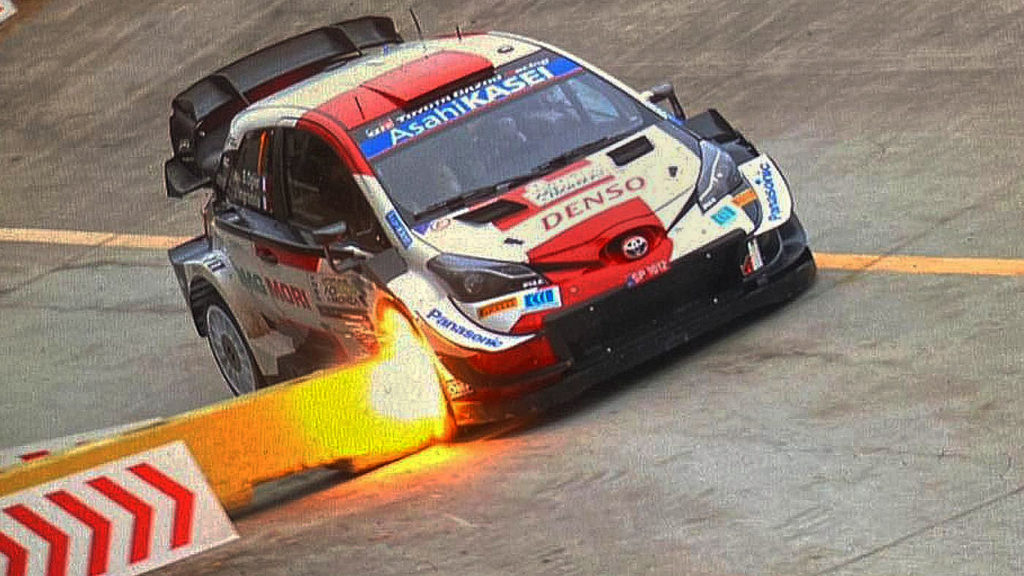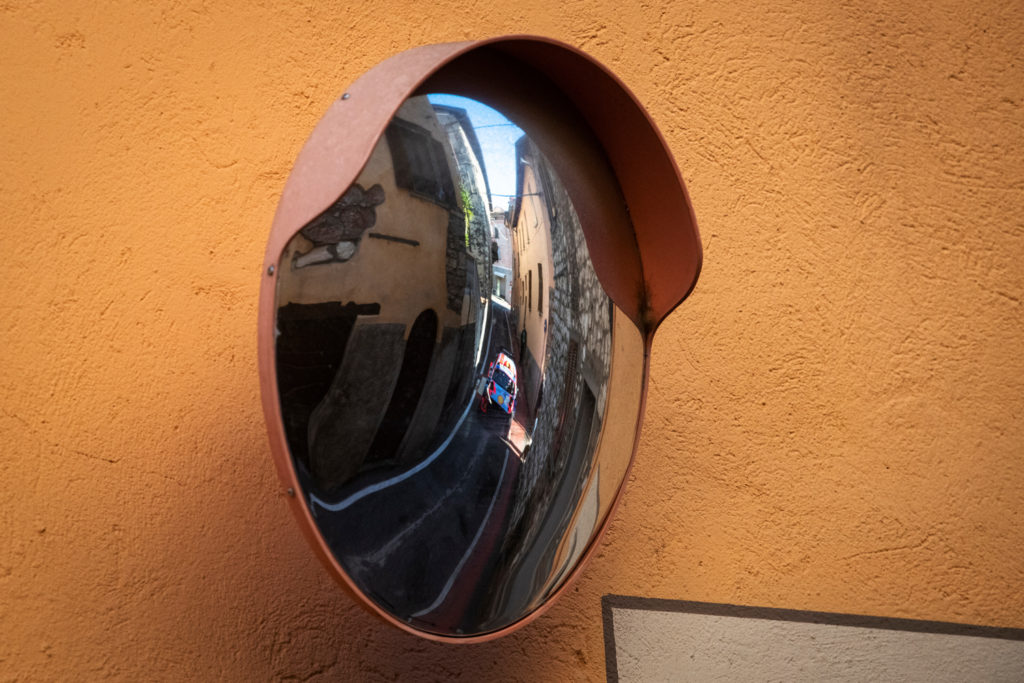Sebastien Ogier and Julien Ingrassia are the men of the hour, signing off on an outstanding era of the World Rally Championship with their eighth, and last, title.
It was done with class, done with skill, and also with a little slice of luck.
From the minute the Toyota pairing settled into their Rally Monza drive, they never looked like letting their eighth title to slip. That was until the first stage of Sunday morning …

Running along one of Monza’s famous banked turns, Ogier clipped a concrete chicane, sending flames from the impacted front right wheel of his Toyota Yaris, but it was his luck that kept the tyre inflated and his lead to championship rival, Elfyn Evans, intact.
Luck may have helped him in that instance, but it’s not luck which gives you a world title. And it’s surely not luck that’s given this pairing eight.
Looking forward into 2022, the sport will be without those amazing World Rally Cars we’ve loved over the previous five seasons, but be under no illusion about the capabilities of these new hybrid cars.
It’s one of those funny sayings that technically doesn’t make sense, however, looking back to look forward is exactly what those in the WRC should be doing when it comes to the next season.
There are a number of well-known changes coming for next season’s World Rally Championship, and looking back is a surefire way to remind yourself that we’ve been here with this ‘new regulations doubt’ before, and the sport, as it always does, will come out on top.
Why? Because there’s never been a large regulation change such as this that’s been a failure.
The introduction of four-wheel drive technology was being called out as not being good for the sport in the early 1980s, and not the right approach.
The rule allowing such cars was even swiftly introduced as FISA (now the FIA) and other rivals underestimated Audi and their engineering prowess with the Quattro.
Then, when the magical Group B category was banned, it took some time for the next class, Group A, to really cement itself and become the iconic class its looked back upon as today.

In 2011, the WRC significantly changed the World Rally Car class for the first time. There was skepticism then, as the engines were downsized, but the six year period brought new manufacturers, kept privateers and became a great class.
So, by no means should it take away or even be compared to these 2017-specification cars, but the next generation should. And in my eyes, it will be savoured.
They’ve got the same internal combustion engines with an additional source of hybrid power – about 130 brake horsepower extra!
We therefore move into the future with new cars, new technology, a wide open title race and more power, and a rally back on our home shores – who’s complaining about that?



Comments